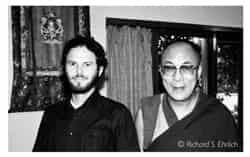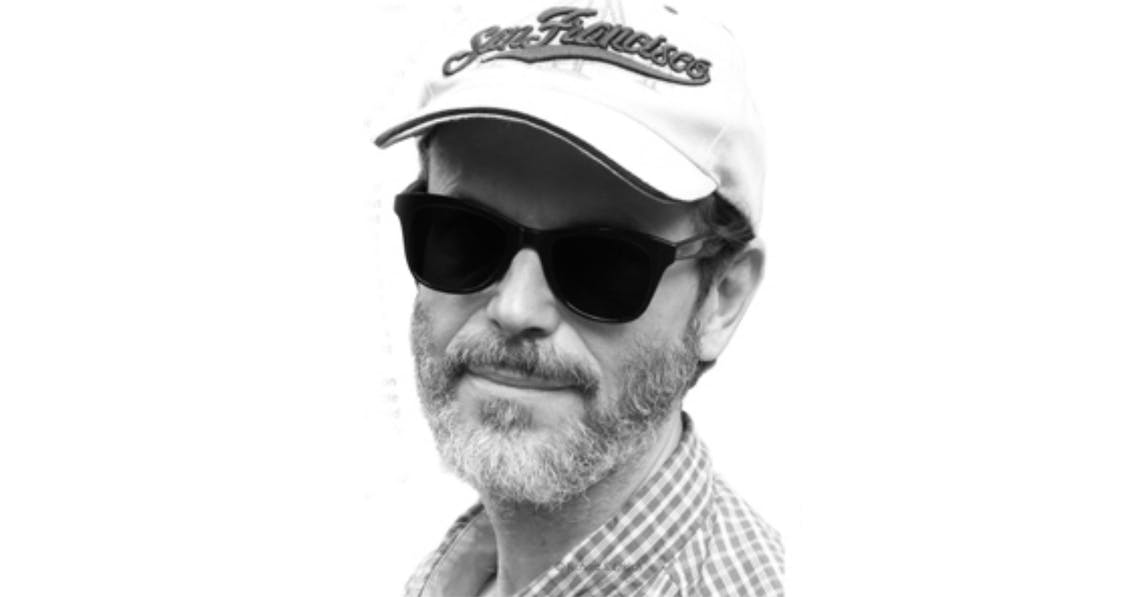Who are you? What is your background?
I’m from San Francisco and came to Asia in 1972 riding public transport, on a trail from Europe to Kathmandu to East Africa. It took several months without maps, and no idea what was out here. In 1975, I travelled back to India via Seoul, Hong Kong, Thailand, Laos and Burma. I did my Bachelor’s degree in literature and creative writing at San Francisco State University, including independent studies while travelling in Asia and my senior year at Hull University, in Yorkshire, England, focusing on British, Commonwealth, and women’s literature, and Shakespeare. After studying at Columbia University’s Graduate School of Journalism, they gave me their 1978 Foreign Correspondents Award, which included $2,500, plus an air ticket to Hong Kong and an internship at United Press International. Since 1978, I’ve been based in Hong Kong, New Delhi, and Bangkok reporting for various media.
How did you get into journalism? Where was your first writing job?
In San Francisco during the early 1970s, I envisioned being wildly successful as a surrealist poet and playwright. That led to poverty. Inspired by ‘Fear and Loathing in Las Vegas,’ I became a columnist for The San Francisco Phoenix underground newspaper, which collapsed after it was allegedly linked to Patty Hearst’s kidnapping by the murderous Symbionese Liberation Army. In 1976, while squatting for a year in the derelict buildings of Battersea, London, I wrote travel stories from Burma etc., for The Daily Telegraph, finally combining two passions – words and travel.
Who have you written for?
Over the years, I have freelanced for the Bangkok Post, Bizarre magazine in England, Poland’s Gazeta Wyborcza, and elsewhere.
I currently report for The Washington Times, BBC Radio, CNN’s website and other international media, and also do photos.
Where have you worked other than Thailand?
After joining the staff of United Press International in Hong Kong in 1978, I kept asking to be sent back to India because I loved it out there. When the Soviet Union invaded Afghanistan in December 1979, UPI agreed that because I knew Afghanistan from 1972, they would base me in New Delhi, to help cover all of South Asia. Delighted, I wrote and photographed from Afghanistan, Pakistan, India, Nepal, Sri Lanka, Bangladesh and Bhutan for them until 1984, and then stayed on based in Delhi freelancing from those countries, and also in Tibet, China, Burma and Thailand. But in 1989, the Russians fled Afghanistan. Both Gandhis _ Indira and Rajiv _ had been assassinated, and the Indian subcontinent’s other stories stagnated. But it became easy to get visas to Vietnam and Cambodia. So I based in Bangkok and since then have also reported and photographed from the Philippines, Malaysia, Indonesia, East Timor, China, Tibet, Burma, Laos and here in my beloved Thailand.
I do photojournalism as well, and have photographed the Queen of England, the Dalai Lama, Mikhail and Raisa Gorbachev, Margaret Thatcher, Cambodia’s Hun Sen, King Norodom Sihanouk, Queen Monique and Prince Ranariddh, Aung San Suu Kyi, Afghanistan’s President Hamid Karzai, warlord Abdul Rashid Dostum and Soviet-backed President Najibullah, Yassar Arafat, Sri Lanka’s Liberation Tigers of Tamil Eelam guerrillas, India’s ‘Bandit Queen’ Phoolan Devi, Asia’s convicted ‘Bikini Killer’, Charles Sobhraj, Khalistan guerrilla leader ‘Saint’ Jarnail Singh Bhindranwale, U.S. President George W. Bush, and Thai Prime Minister Abhisit Vejjajiva.
What was the most interesting story you’ve written?
The freakiest was witnessing an entire gruesome ‘sky funeral’ on Lhasa’s outskirts, where Tibetan Buddhists fed four dead people to vultures. Using knives, the undertakers dismembered and disembowelled the people atop a big, flat boulder and ripped off the corpses’ faces like rubber masks. They broke the skulls by pounding them with heavy rocks, then held up the cracked skulls and opened them, plopping out each brain like a quivering, gray, egg yolk.
Have you ever covered a story that you thought was dangerous?
In June 1980, six months after the Soviet invasion of Afghanistan, I was arrested in Charikar claiming I was a tourist, because American journalists were banned. I was taken to Kabul to the Afghan KHAD secret police, the Interior Ministry and the passport office, but was first able to get my escort drunk. By the time he brought me to their offices, it was early evening and everything was closed. Luckily, as it later turned out, he was a subversive, anti-Soviet sympathizer.
More recently, on May 19, 2010, I wrote and photographed alongside the Thai army’s deadly assault on Ratchaprasong when they crushed the Red Shirts’ bamboo barricades.
Have you ever met any exceptional people while working as a journalist?
Obscure, anonymous victims teach me the most about how to perceive the world. Anyone desperate – guerrillas fighting for their lives, or extremists warped by torture or ignorance, or psychotics on the street or institutionalised – they have offered the best poetry, revelations, warnings and advice. By comparison, political leaders often appear stilted, scripted, deceptive, controlled, shallow and mindless.
Is there a certain story you wish you could have covered?
Mao Zedong’s Egyptian-style embalming, because after reading his doctor’s medical records, it is such a hilarious story. More personally, the September 11th World Trade Towers attack. I flew to New York on the first available flight, arriving eight days later, and reported and photographed the aftermath.
Why have you stayed in Thailand for so long?
Because of a passionate love story including millions of bizarre characters, a hypnotic and romantic region, and a gorgeous, innocent Thai girl.
Have you covered a story in Chiang Mai?
I like travelling there, but the stories I’ve reported about it were datelined Bangkok including the 2006 imprisonment of Hellfried Sartori after the death of patients in Chiang Mai who received his ‘Doctor Ozone’ anti-cancer injections.
What’s the best part of doing what you do? And the worst part?
The best is freedom. The worst is the kidnapping and beheading of journalists.
Is there a story you’d like to see written about Thailand that hasn’t yet been written?
Yes. We all know that story.
Give me a headline from a possible story you might write in 2021?
Eternally optimistic, let’s hope the headline is: Under Thailand’s Opulent Pleasure Domes, There Are Human Organ-Growing Fish in the Rivers and Free Rice for Everyone in the Robot-Farmed Fields.
What does it take to become a good journalist?
Write an incandescent ‘lede’ (first sentence), report elaborate scoops, and never make a mistake.
How can a freelancer survive in Thailand?
Avoid spawning. Enjoy eating gruel. Dwell in a crumbling pagoda.
What do you consider to be the best sort of journalism?
Detailed exposes. Powerful quotes.
Is there a journalistic story that inspired you, that had a profound effect on you?
The Q & A (question and answer) style of Studs Terkel. And the book ‘Dispatches’ by Michael Herr.
And the worst?
The worst journalism? Bait-and-switch with no evidence to prove the lede.

For pure enjoyment, anything online, true or false. Especially fanatics’ ranting propaganda. Also broken English. And anyone who intentionally mutates language so it almost appears random or unintelligible, such as William S. Burroughs or Antonin Artaud, because that allows new imagery and concepts. Experimental writing. My interest in all that started many years ago with the book, ‘The Journal of Albion Moonlight,’ by Kenneth Patchen.
What do you stay away from?
Novels and most prose fiction. Alas, no time.
How do you consider the state of journalism in Thailand?
Stateless. Too paraphrased. Not enough quotes.
Are professional journalists as important as they used to be, considering all the online blogs and citizen journalists, etc?
Oh, yes, totally vital to the survival of the free world. But everyone can report. All we ask of the bloggers and others is: Confirm everything, and do not write anything that is not true. Or just cut to the chase and put the documents online. I worship raw data.
What has been your greatest moment doing your job?
Receiving other people’s eloquent words out of thin air.
Richard S. Ehrlich is has reported news from Asia since 1978, based in Hong Kong, New Delhi and now Bangkok where he is a journalist for the Washington Times, BBC radio, CNN’s website and other international media. He is co-author of a nonfiction book titled, ‘Hello My Big Big Honey!’ Love Letters to Bangkok Bar Girls and Their Revealing Interviews – published in English, German, Italian and French. Ehrlich is also one of the researchers and writers of a book titled, ‘1946-2009 Chronicle of Thailand: 64 Years of Headline News”‘ which documents, among other events, Thailand’s military which napalmed northern hill tribes near Chiang Mai. Ehrlich’s updated news stories and photography are available on two websites:
